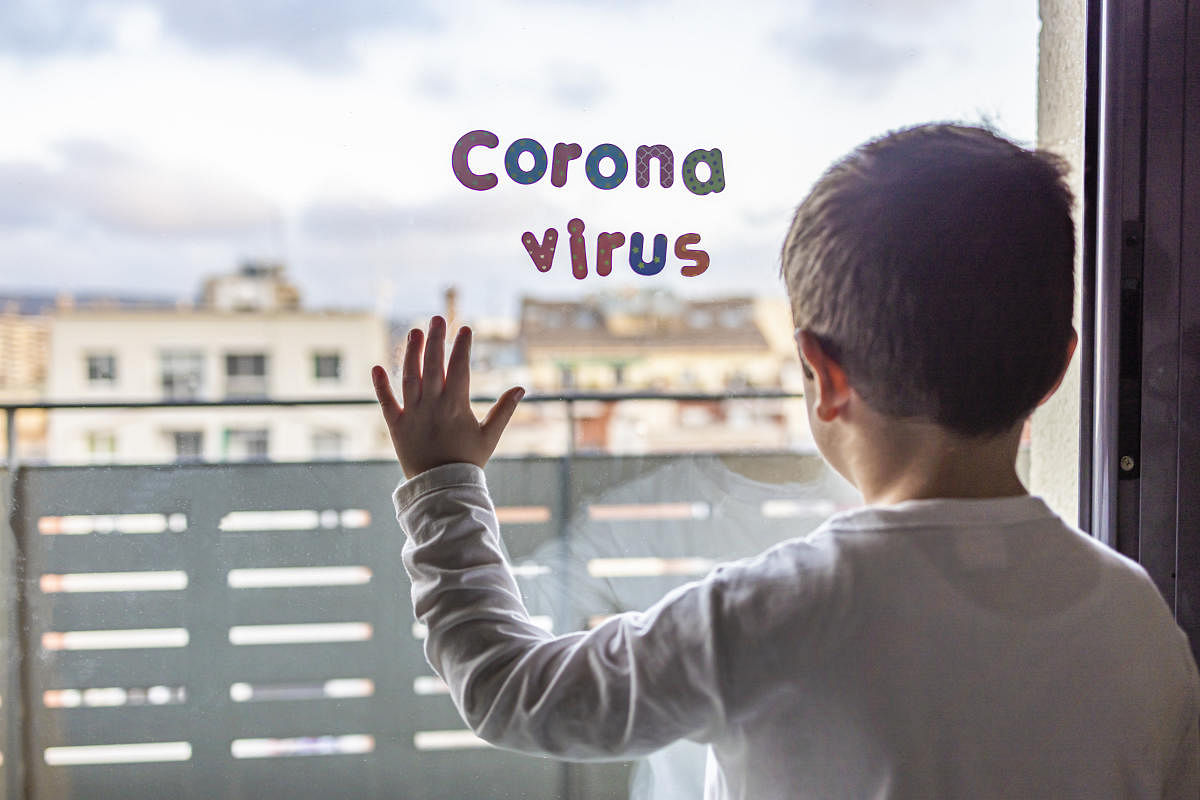
The unprecedented COVID-19 pandemic has created several disruptions in people’s lives — from their work schedules, to having to redefine space within the house, uncertainty about the future, and about their health. Most people are feeling a sense of anxiety or stress.
While children and adolescents are at lower risk of suffering from serious consequences of coronavirus infection, these changes have certainly affected them and created several stressors.
Many children are facing uncertainty about their exams and academic future. They are spending most of their time indoors and cannot go out and meet their friends. Their parents, who are now working from home, are themselves often quite stressed. Children will feel more stressed and anxious due to these disruptions. They may complain of boredom, they may feel frustrated or irritable, while others will have erratic schedules. Many teenagers are sleeping quite late at night after spending hours on the internet and social media and then, waking up late.
Food choices may not be healthy and due to lack of access to common spaces outside and sports activities, they may not be getting as much exercise as usual. Many teens will feel the stress of isolation and missing their peers. This combination of uncertainty and lifestyle changes pose a risk to their mental health.
Fortunately, there are several steps that can be taken in order to manage stress and prevent mental health issues:
Having a schedule is vital and parents should encourage their teenagers and children to maintain a schedule. The idea is to have as much regularity as possible even if there are no external expectations or deadlines. Sleep and wake up time should be regular as also meal timings.
Children pick up the emotional state of their parents. Parents should take care of their own emotional equilibrium so as to model a behaviour and feeling of security, safety, patience and relaxation. When children observe their parents in this state, they will feel much more relaxed and less stressed.
Having a clear goal or objective is important. This could include completing some coursework, reading a few books, learning a new skill or a hobby. These goals should be integrated into a schedule so that time is spent on these activities on a daily basis.
Children and adolescents should be informed about their own role in preventing the COVID-19 pandemic. They should understand why social distancing is important so as to protect other people. The communication should be done in an age-appropriate way.
Children and adolescents should be encouraged to talk to their friends regularly. Since meeting may not be possible due to social distancing, chatting online or speaking on the phone is a good way of keeping in touch during this time.
While technology is useful in staying in touch during this time, parents should limit the amount of screen time for children and teenagers. They should also not be spending time constantly updating themselves about the news. Binge-watching should be avoided.
While social distancing is important, whenever the opportunity presents itself to do so in a safe way, it’s important for teenagers and children and everybody in general, to get exposure to fresh air and sunlight.
Regular physical exercise can be done indoors, such as aerobics or yoga. Exercise is vital in managing stress and improving mental health.
Family should spend time together both in conversation and doing some activities. Children and teenagers should be involved in household chores and have certain duties that they perform on a regular basis.
Teenagers and older children can be introduced to the practice of mindfulness and relaxation exercises such as progressive muscular relaxation. This will ease tension and anxiety.
If your child or teenager continues to exhibit irritability, or if you have any concerns about ongoing emotional issues, then do not hesitate to consult a mental health professional.
(The author is Psychiatrist and Trustee, The Live Love Laugh Foundation)
Deccan Herald is on WhatsApp Channels| Join now for Breaking News & Editor's Picks